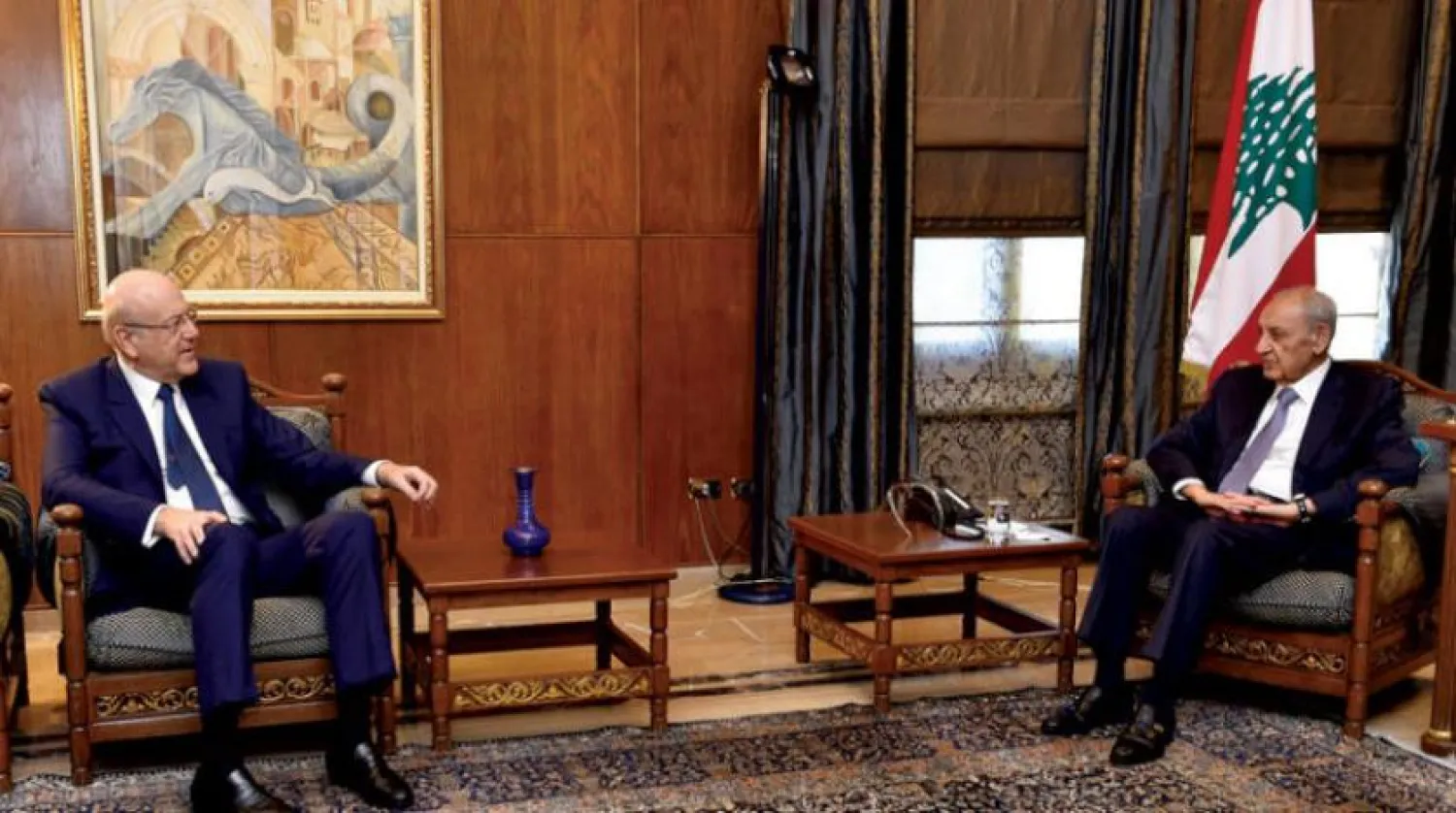Lebanon’s Parliament Speaker Nabih Berri gave a month and a half ultimatum for the government of PM Najib Mikati to either succeed or fail in its mission, stressing that the term of the current parliament will not be extended.
In remarks he made to Asharq Al-Awsat, Berri said he urged Mikati to expedite the government's work, which he believes has an opportunity that does not extend beyond “one month and a half.”
With the beginning of December, “the Parliament becomes almost paralyzed; first, because of the holidays, and secondly, because of the approaching election date, and the focus of representatives on their electoral campaigns,” said Berri.
“During this period of time, the government must conclude the discussion with the International Monetary Fund, or at least take practical steps in this direction, and must solve the electricity problem,” otherwise it fails, Berri added.
He criticized the efforts of some to focus on administrative, diplomatic and security appointments, describing it as a “distraction.”
“It is not a basic demand,” he said, “but providing electricity for the people is. It caused them a lot of problems and suffering. It is not the time for appointments. If it weren’t for the Lebanese army, which donated its stockpile of fuel to electricity plants, we would be in complete darkness today,” stressed Berri.
On the upcoming parliamentary elections, and the conflict over the expatriates voting, he said his Development and Liberation parliamentary bloc believes in the expats’ right to vote as stipulated in the applicable law.
On bringing the date of the elections closer to be held on 27 March instead of 8 May, Berri said it serves the candidates better than having the polls held during the holy month of Ramadan.
“It will be difficult for the candidates to conduct electoral tours, deliver speeches and visits,” during Ramadan, he said.
The Speaker stressed that there will be no extension of the current Parliament's term.
On Sunday, Berri’s Development and Liberation MPs criticized the government’s slow pace in addressing the country’s crises.
MP Mohammad Khawaja said Mikati’s government is “working at a normal pace in exceptional circumstances.” He said the government should have held an urgent meeting when the country’s power grid totally failed and drenched the nation in total darkness.
MP Qassem Hashem, also of Berri’s bloc said: “The government must take exceptional decisions during exceptional circumstances. Government meetings must remain open to discuss all immediate and sustainable solutions to mitigate the effects of the crisis.”









